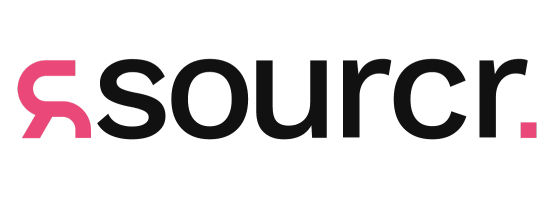5 Ways Business Support Roles Drive Organisational Success
When it comes to the success of your business, it's easy to focus on those on the front line—the sales team closing deals, the marketing gurus crafting viral campaigns, the tech wizards conjuring digital innovations. But underneath all of that, quietly running the engine, are those people in business support roles.
People like administrators, receptionists, and office managers ensure the smooth flow of information, the efficient allocation of resources, and the seamless day-to-day operations that allow every other department to focus on their specific goals.
What makes a good business support candidate?
Attention to Detail
While everyone in your company should have good attention to detail, this particular skill is absolutely essential for your office managers, receptionists, and administrators. That’s because they’ll need to ensure that the information entered into any documentation is accurate and up-to-date, especially when it comes to legal documents.
Reliability
Because so much responsibility is placed on their shoulders, from customer communications to data management, your business support candidate should demonstrate a strong sense of reliability. You should know that you can trust them to get the job done, no matter what, so that your business can continue to run smoothly and efficiently.
Approachable
Office managers and receptionists, in particular, deal with people on a regular basis. In order for them to be successful in their roles, they need to have a friendly, approachable nature. Customers should be left with a smile after interacting with them, and the rest of your team should know they can seek help from their go-to office guru at any time.
Flexible
As anyone who has owned or worked in a business knows, nothing ever stands still. The way you do things is always evolving, so a good business support person needs to be able to adapt to the changing needs of the business. They may need to play more than one part in the wider business, and you’ll want to hire someone who’ll take on that challenge with pride and efficiency.
As a leading recruitment agency in Sydney, we know firsthand the power of a strong business support team. That’s why we’ve put together some compelling reasons why investing in top-notch business support talent is the smartest move you can make for your organisation's success.
1. They’re Masters of Efficiency
Scheduling meetings, managing calendars, tracking expenses, and navigating complex workflows can be time-consuming, energy-sapping tasks for anyone. But a skilled administrator can automate processes, streamline procedures, and anticipate needs before they arise. They free up your high-performers to do what they do best—innovate, create, and drive revenue.
Someone in a business administrator role ensures that every aspect of your business operates with precision. Their meticulous attention to detail and organisational expertise creates an environment where efficiency thrives, and so does your business.
2. They’re Frontline Brand Ambassadors
As the saying goes, you only get one chance to make a good first impression. As the face of your company, a receptionist is often the first point of contact for clients, partners, and potential hires.
A skilled receptionist goes beyond simply answering phones; they create a positive and welcoming atmosphere, leaving a lasting impression on anyone who walks through the door. By ensuring seamless communication and providing excellent customer service, receptionists contribute significantly to building a positive brand image.
3. They Maximise Productivity
Imagine an office without an office manager. Supplies run low, equipment malfunctions, and communication channels clog up. The wheels fall off, and the team grinds to a halt. A competent office manager is the glue that holds the organisation together. From overseeing budgets to implementing efficient processes, they play a vital role in creating a conducive work environment.
A strategic office manager understands the pulse of the organisation, fostering a culture of collaboration and productivity. They are the backbone of a happy, productive work environment, and their ability to align administrative functions with overarching business goals is instrumental in achieving long-term success.
4. They’re Valuable Knowledge Hubs
Don't underestimate the power of information. Administrators are often the data entry wizards and the record-keepers of an organisation. They collect, analyse, and organise crucial data—everything from customer information to operational metrics.
But a truly exceptional administrator goes beyond data crunching. They extract insights, identify trends, and provide valuable information to decision-makers. They give you the ammunition you need to make informed strategic choices, keeping your business ahead of the curve.
5. They’re Vital Gatekeepers
If you didn’t have a reliable team of business support staff, who would direct traffic for your business? It would likely end up being you. From customer phone calls to printer emergencies, every query or problem would be yours to answer and solve.
Receptionists, office managers, and administration staff give you the opportunity to put your focus where it needs to be: on growing your business. They’re your trusty gatekeepers, managing day-to-day operations and customer queries so that only the most urgent and important tasks filter through to you.
Find Your Hidden Business Support Gem
Finding the right people to fill these vital business support roles isn’t always easy. You need more than just technical skills; you need individuals with the right attitude, emotional intelligence, and genuine passion for supporting others. That's where a competent recruitment agency comes in.
Here at WOW Recruitment, we understand the critical role business support plays in organisational success. We have the expertise and network to identify those hidden gems—the individuals who possess the right blend of skills, personality, and cultural fit to become invaluable assets to your team. We don't just fill positions; we help you build a foundation for long-term growth and success.
Whether you’re looking for a charismatic receptionist, a dedicated administrator, or a stellar office manager in Sydney, we can help you find your hidden business support gem. Get in touch with us today to get the ball rolling.
















